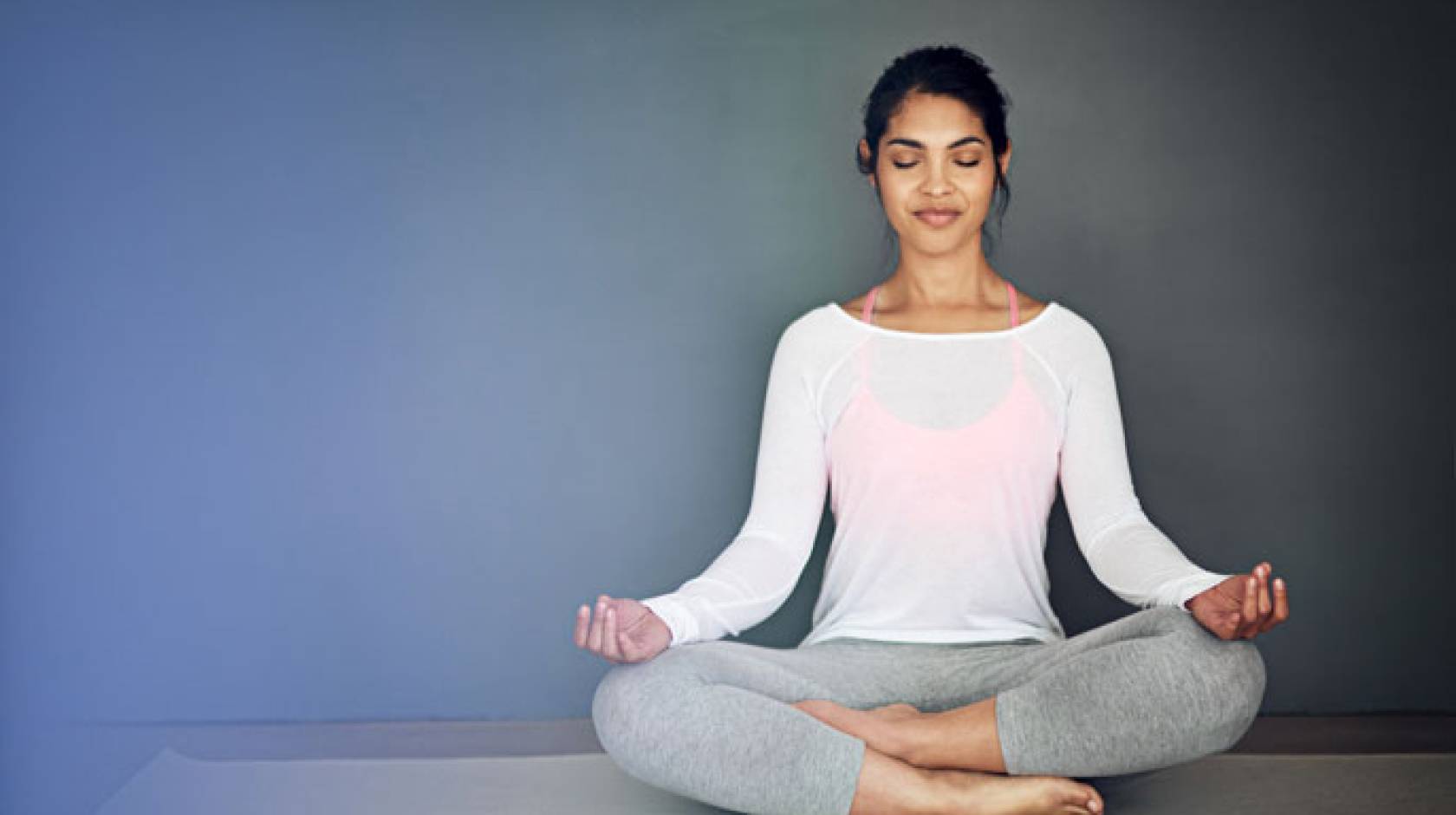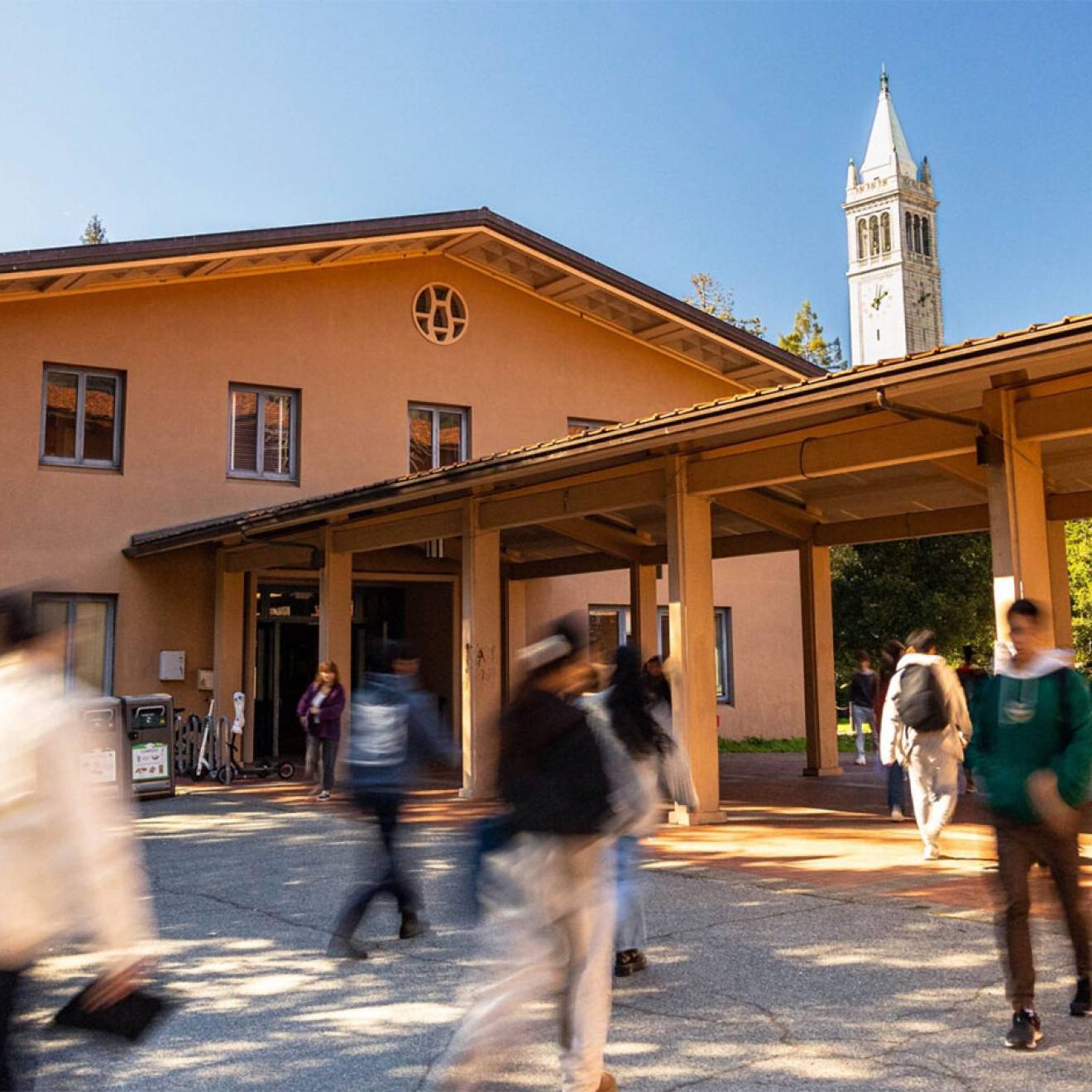Sonia Fernandez, UC Santa Barbara

You’re late and there’s traffic. Your email inbox is flooded with urgent messages. You’re caught in the middle of a tiff between good friends. You have only a couple of weeks to move out of your place and find another. Your doctor says you need to “come in for some more tests.”

Credit: Courtesy image
Stress and upheaval are facts of life. But, according to UC Santa Barbara theater professor Christina McMahon, those circumstances don’t have to break you. A dedicated meditator and avid proponent of mindfulness, McMahon and former Gaucho Daniel Lee are promoting mental and emotional self-care with an app that can slow you down, restore your focus and hold stress at bay while giving you much-needed mental space. All in the space of three minutes.
Called “Aura,” the app takes users on short, guided meditations meant to quell anxieties and negativity and help them regain control of their inner space and emotions. Utilizing deep learning technology, the app asks users to register their general mood, and then responds with an appropriate “micro-meditation.” In 180 seconds, a user might go from feeling out of control to feeling ready to take steps to manage his or her situation, or from having harsh self-judgment to gaining much-needed perspective.
“Meditation helps to slow down your thoughts,” said McMahon, who specializes in African theater in the Department of Theater and Dance. In the commotion of modern life, people experience tens of thousands of thoughts every day, she said, and it becomes easy for the thinkers to get bogged down, triggered, reactive and held hostage by the stream of ideas and messages constantly flowing through their brains.
Overcoming trauma, improving the quality of life
Credit: UC Santa Barbara
McMahon knows this all too well. Some years ago, during a trip to Africa for her research, she experienced gender-based violence, and while she wasn’t harmed physically, the mental and emotional trauma left her unsteady and unsure.
“I realized that in the moment of the attack, my mind was going in a million directions,” she said. The combination of distraction and lack of awareness — she had been mulling over all the things she had to do and places she had to be — left her vulnerable. Even when she returned to her home soil, things weren’t going back to normal as she had hoped.
That’s when she turned to meditation, to help her regain steadier footing.
“It was not to blame myself but more to take responsibility, so I could be more aware and more present, so I could protect myself better,” she said.
It took years and many classes with local mindfulness teachers, but the end result, according to McMahon, was that while stress remained, the quality of her life improved, the inner critic was toned down and she could funnel more of her mental and emotional energy toward creative projects and deeper relationships. She even began to produce her own meditations and now holds mindful meditation lunches at the Women’s Center on campus, in partnership with the Campus Advocacy, Resources & Education office.
Addressing stress

Credit: Courtesy image
Simultaneously and separately, Lee was discovering the power of meditation. Watching their mother go through depression, he and his brother Steven were shocked to find that she had little recourse other than medication. Trying to find a way to address the turmoil of her condition and the stress of their own lives, the brothers turned to mindfulness.
“What we quickly found out was that meditation apps at the time made it hard for beginners to get into it,” Lee said. “Most of the sessions were about 10 minutes long, which is very long for a beginner. And beginners, when they go into the app, they don’t really know what kind of meditations would suit them best.
“We knew a lot of people who knew mindfulness and meditation were good, they just couldn’t get into it,” he added.
That was about seven months ago. Seeing the need, they bent their efforts toward creating an app that could take the pressure off new meditators to fill time in their minds while training them in mindfulness. They reached out to producers of guided meditations on other apps, and that’s where they found teachers, including McMahon, who were eager to record the micro-meditations. They launched on the tech startup site TechCrunch last January.
About six months in, the response has been good, said Lee.
“With machine learning it takes a little bit of time to get it to work, as it’s very hard for a recommendation system to be right all the time,” Lee said. “But the responses from our users have been amazing and our recommendation system is getting smarter every day.” The app recently underwent updates that gave the teachers their own channels, so users could choose based on teachers they connected with, and slightly longer guided sessions are now available.
Beginner's mind — for newbies and experts
But it’s not just for those new to mindfulness and meditation, said McMahon.
“I like to use the three-minute meditations over lunch as a reset,” said McMahon. Any time thoughts begin to clamor, or perhaps a panic attack is looming, or the email seems insurmountable, or it’s time to switch gears between projects, a short session can often be enough to clear the decks of mental baggage and reenergize.
“There’s something called ‘beginner’s mind,’” said McMahon, referring to the Zen concept of openness of mind and lack of prejudgment, qualities that remove self-imposed limits to learning and dealing with situations that arise. “It reminds you to be very kind and gentle with yourself.”
Find out more about Aura at https://www.aurahealth.io/

